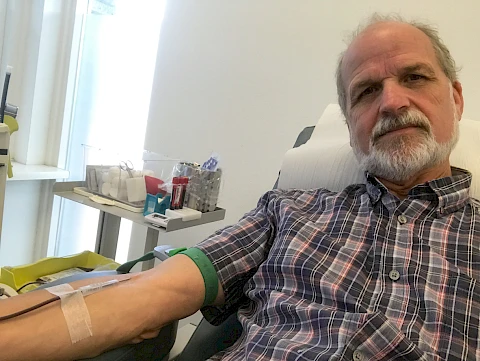
January is National Blood Donor Month, a time dedicated to raising awareness about the critical need for blood donations. They’re a lifeline for countless people in every community, saving lives daily. Yet, many donation centers struggle to maintain the supply needed. As a caregiver, you have a unique opportunity to advocate for and encourage blood donation, particularly among eligible seniors, making a significant impact in your community.
The Blood Donation Process
Blood donation is a pretty straightforward process. It involves a donor giving roughly one pint of blood in a safe, controlled environment. Donated blood helps those in need, from accident victims to people undergoing surgery. It's a rewarding experience that often includes health benefits for donors like improved heart health and reduced stress.
Common concerns and misconceptions about blood donation often prevent individuals from donating. Some worry about pain or dizziness, yet the process is typically quick and causes minimal discomfort. Educating potential donors about what to expect and addressing their concerns can go a long way in overcoming these barriers.
Encouraging Seniors to Donate
Seniors can be excellent candidates for blood donation. While health conditions or medications may affect their ability to donate, healthcare providers can assess their eligibility.
Communicating the impact of their donation can be motivating. Many seniors find fulfillment in knowing they’re making a difference in their community, and blood donation offers a tangible way to do so. Share stories of senior donors who have positively impacted their communities to inspire them to roll up their sleeves.
How Caregivers Can Support Blood Donation
Your presence and encouragement can make a big difference in making blood donation a positive experience for seniors. Consider helping seniors schedule appointments with healthcare providers to confirm their eligibility. Arranging transportation to and from the donation center ensures convenience. Simply being present and offering emotional support makes the process less intimidating. Some seniors might feel a bit tired after donating. You can assist by ensuring they rest and have enough snacks and fluids to recover quickly.
Alternative Ways Caregivers Can Contribute
If direct donation isn't feasible, consider participating in or organizing local blood drives to raise awareness and encourage community involvement. Volunteering at local blood donation centers provides much-needed support. Educating others about how vital donations are can encourage more people to get involved.
Local Blood Donation Opportunities
Many communities host regular blood drives where you and eligible senior loved ones can donate. Local centers offer convenient locations for donors. Upcoming community blood drives provide easy ways to get involved. Partnering with local organizations can amplify efforts and maximize community involvement. These partnerships can host larger blood drives or spread information more effectively.
Senior Helpers Can Assist With Transportation Arrangements and More
Caregivers can do so much in promoting blood donation during National Blood Donor Month and beyond. If you're considering getting additional support for a senior loved one so you can spare time to donate or need transportation assistance for a senior loved one who wishes to attend a donation drive, we can help. Serving Chattanooga, Red Bank, Signal Mountain, Ooltewah, and Hixson, Senior Helpers Chattanooga specializes in personalized senior home care services that cover various aspects of elderly care. Contact us for more information!